Abstract
Spirochaeta thermophila RI 19.B1 (DSM 6192) fermented glucose to lactate, acetate, CO2, and H2 with concomitant formation of cell material. The cell dry mass yield was 20.0 g/mol of glucose. From the fermentation balance data and knowledge of the fermentation pathway, a YATP of 9.22 g of dry mass per mol of ATP was calculated for pH-uncontrolled batch-culture growth on glucose in a mineral medium. Measurement of enzyme activities in glucose-grown cells revealed that glucose was taken up by a permease and then subjected to ATP-dependent phosphorylation by a hexokinase. Glucose-6-phosphate was further metabolized to pyruvate through the Embden-Meyerhof-Parnas pathway. The phosphoryl donor for phosphofructokinase activity was PPi rather than ATP. This was also found for the type strain of S. thermophila, Z-1203 (DSM 6578). PPi was probably formed by pyrophosphoroclastic cleavage of ATP, with recovery of the resultant AMP by the activity of adenylate kinase. All other measured kinase activities utilized ATP as the phosphoryl donor. Pyruvate was further metabolized to acetyl coenzyme A with concomitant production of H2 and CO2 by pyruvate synthase. Lactate was also produced from pyruvate by a fructose-1,6-diphosphate-insensitive lactate dehydrogenase. Evidence was obtained for the transfer of reducing equivalents from the glycolytic pathway to hydrogenase to produce H2. No formate dehydrogenase or significant ethanol-producing enzyme activities were detected.
Full text
PDF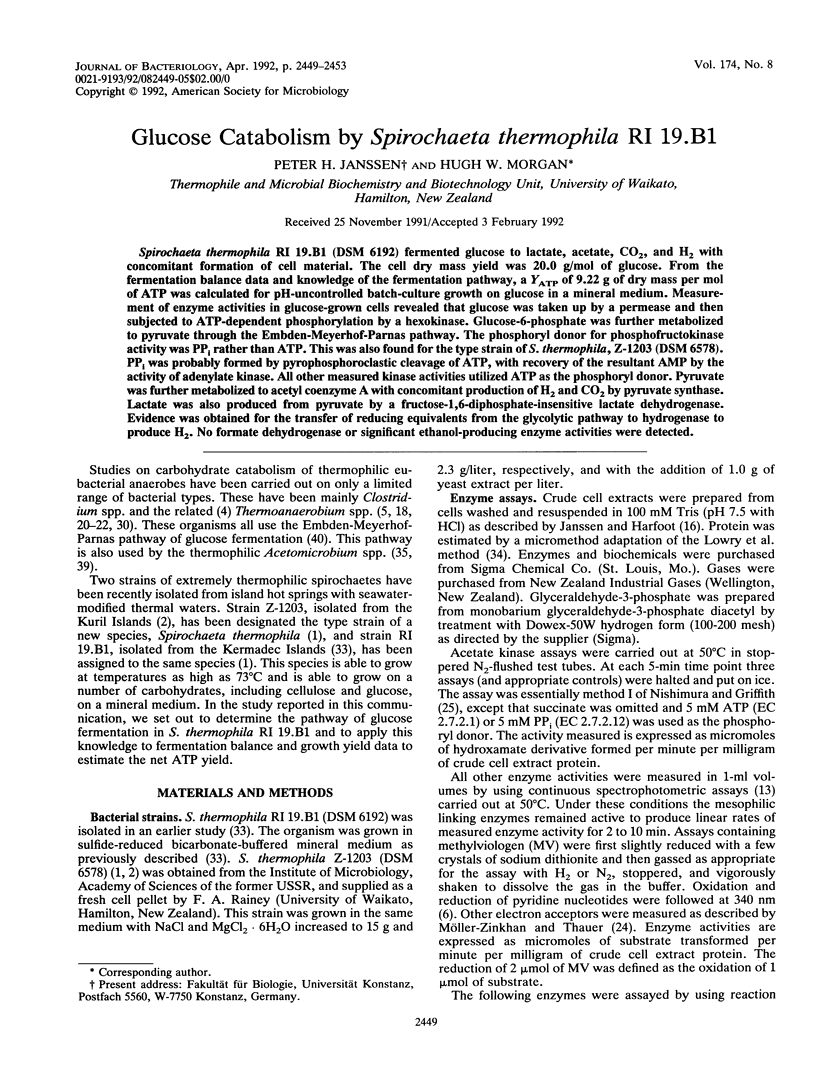
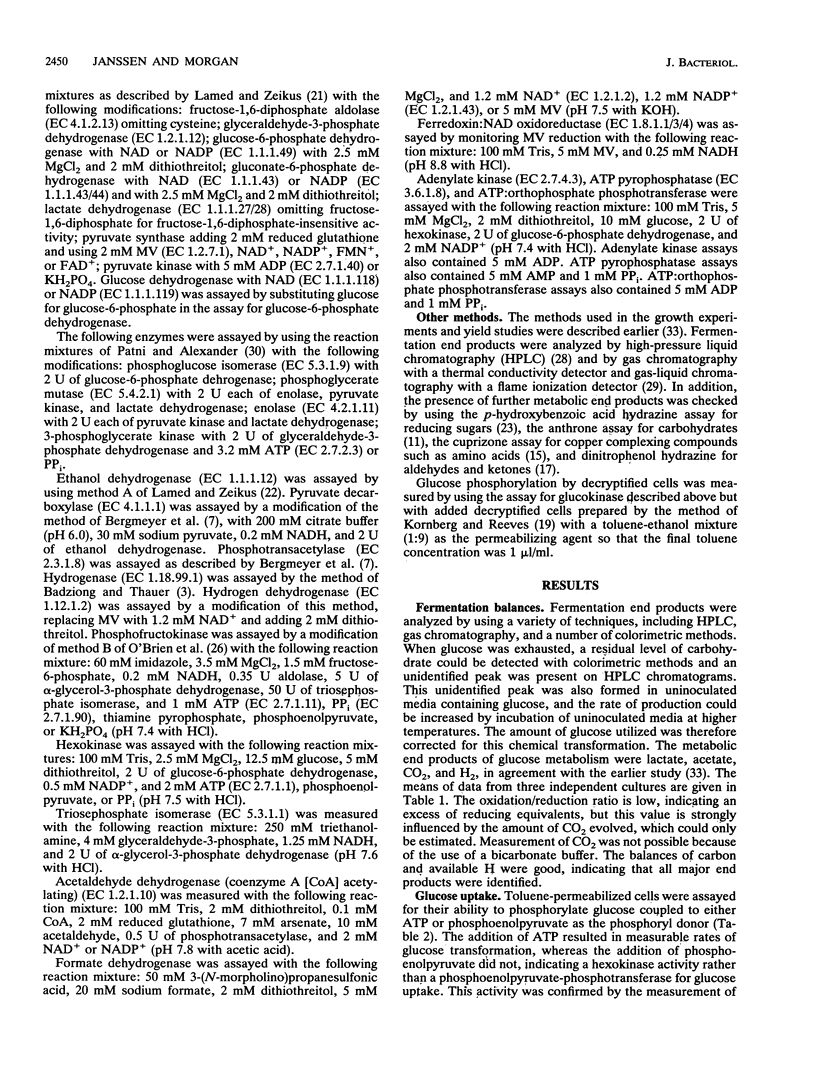
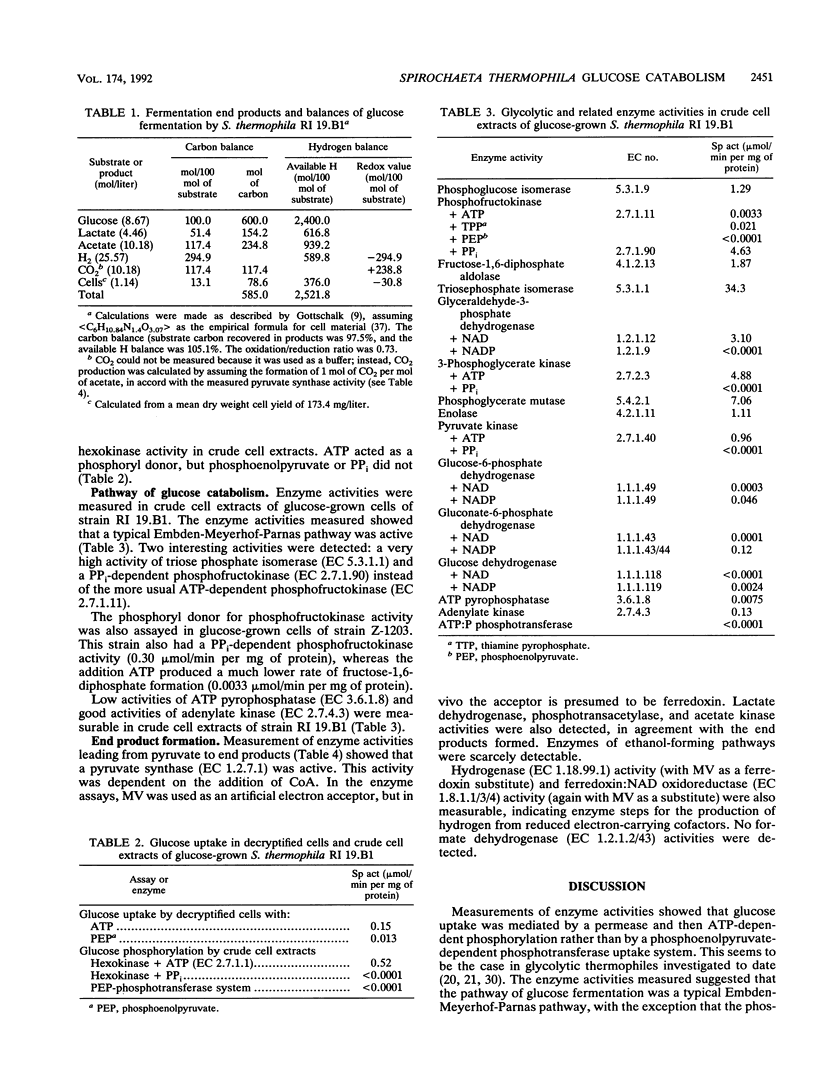
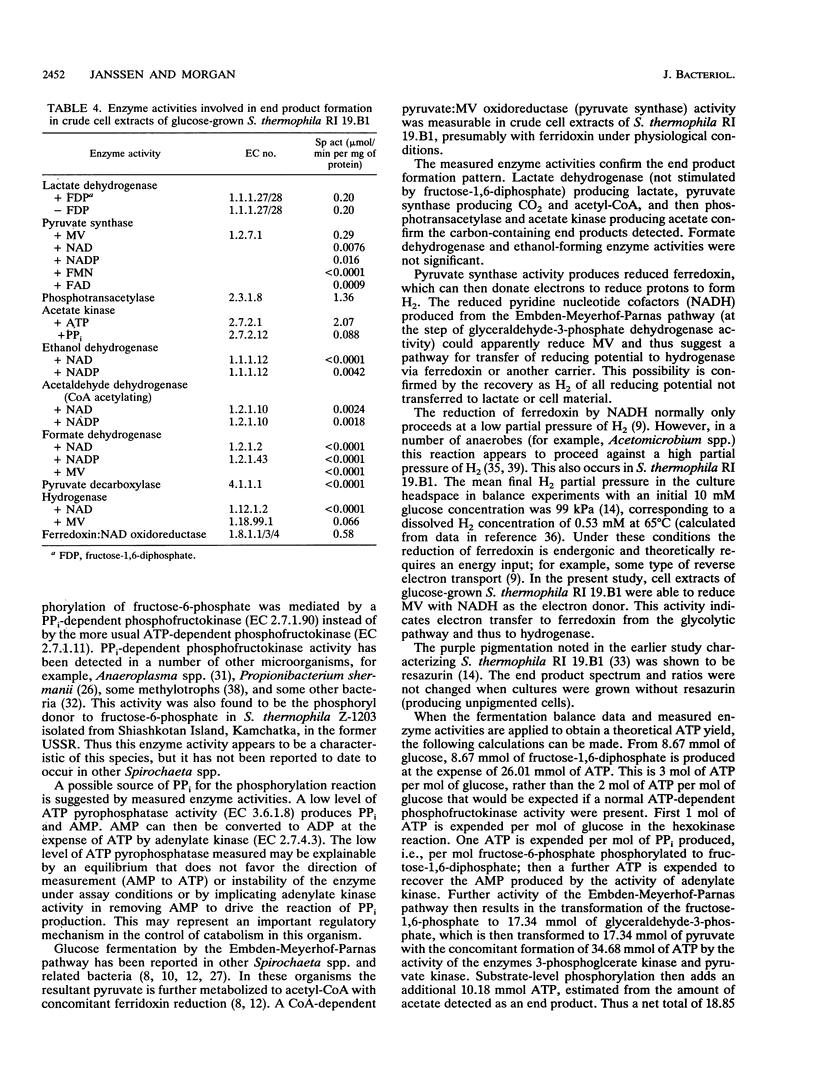
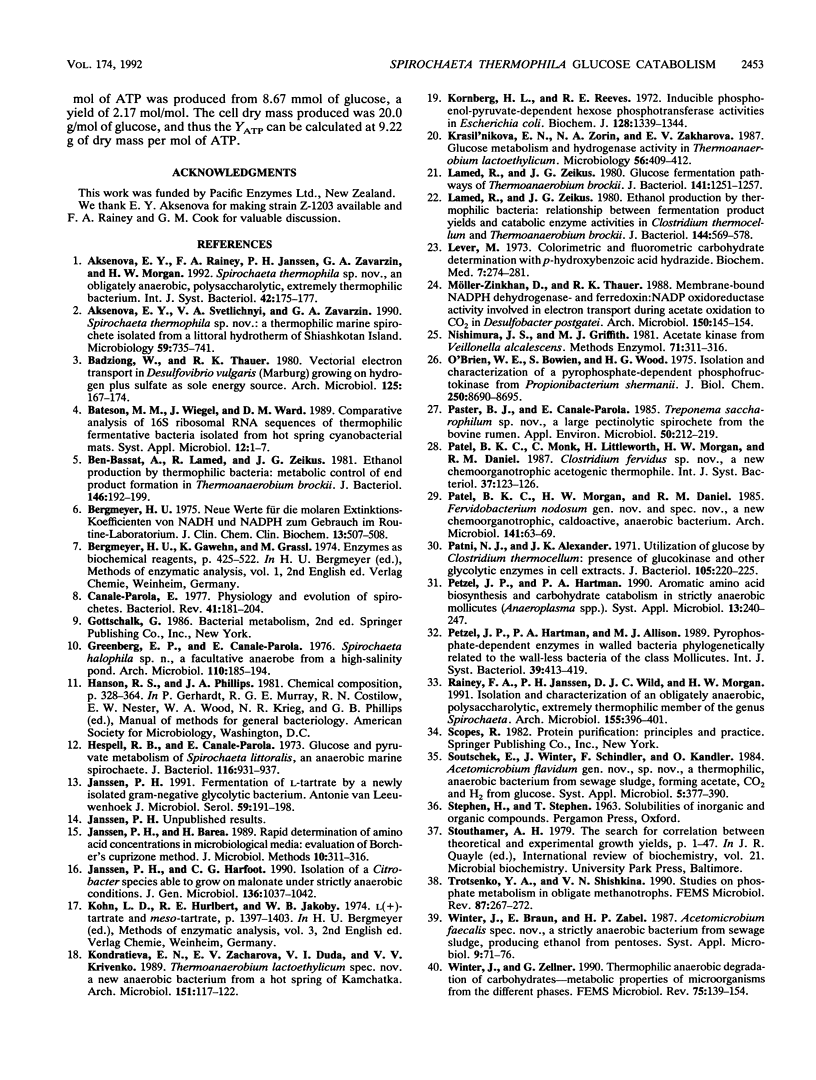
Selected References
These references are in PubMed. This may not be the complete list of references from this article.
- Ben-Bassat A., Lamed R., Zeikus J. G. Ethanol production by thermophilic bacteria: metabolic control of end product formation in Thermoanaerobium brockii. J Bacteriol. 1981 Apr;146(1):192–199. doi: 10.1128/jb.146.1.192-199.1981. [DOI] [PMC free article] [PubMed] [Google Scholar]
- Canale-Parola E. Physiology and evolution of spirochetes. Bacteriol Rev. 1977 Mar;41(1):181–204. doi: 10.1128/br.41.1.181-204.1977. [DOI] [PMC free article] [PubMed] [Google Scholar]
- Greenberg E. P., Canale-Parola E. Spirochaeta halophila sp. n., a facultative anaerobe from a high-salinity pond. Arch Microbiol. 1976 Nov 2;110(23):185–194. doi: 10.1007/BF00690227. [DOI] [PubMed] [Google Scholar]
- Hespell R. B., Canale-Parola E. Glucose and pyruvate metabolism of Spirochaeta litoralis, an anaerobic marine spirochete. J Bacteriol. 1973 Nov;116(2):931–937. doi: 10.1128/jb.116.2.931-937.1973. [DOI] [PMC free article] [PubMed] [Google Scholar]
- Janssen P. H. Fermentation of L-tartrate by a newly isolated gram-negative glycolytic bacterium. Antonie Van Leeuwenhoek. 1991 Apr;59(3):191–198. doi: 10.1007/BF00580659. [DOI] [PubMed] [Google Scholar]
- Janssen P. H., Harfoot C. G. Isolation of a Citrobacter species able to grow on malonate under strictly anaerobic conditions. J Gen Microbiol. 1990 Jun;136(6):1037–1042. doi: 10.1099/00221287-136-6-1037. [DOI] [PubMed] [Google Scholar]
- Kornberg H. L., Reeves R. E. Inducible phosphoenolpyruvate-dependent hexose phosphotransferase activities in Escherichia coli. Biochem J. 1972 Aug;128(5):1339–1344. doi: 10.1042/bj1281339. [DOI] [PMC free article] [PubMed] [Google Scholar]
- Lamed R., Zeikus J. G. Ethanol production by thermophilic bacteria: relationship between fermentation product yields of and catabolic enzyme activities in Clostridium thermocellum and Thermoanaerobium brockii. J Bacteriol. 1980 Nov;144(2):569–578. doi: 10.1128/jb.144.2.569-578.1980. [DOI] [PMC free article] [PubMed] [Google Scholar]
- Lamed R., Zeikus J. G. Glucose fermentation pathway of Thermoanaerobium brockii. J Bacteriol. 1980 Mar;141(3):1251–1257. doi: 10.1128/jb.141.3.1251-1257.1980. [DOI] [PMC free article] [PubMed] [Google Scholar]
- Lever M. Colorimetric and fluorometric carbohydrate determination with p-hydroxybenzoic acid hydrazide. Biochem Med. 1973 Apr;7(2):274–281. doi: 10.1016/0006-2944(73)90083-5. [DOI] [PubMed] [Google Scholar]
- O'Brien W. E., Bowien S., Wood H. G. Isolation and characterization of a pyrophosphate-dependent phosphofructokinase from Propionibacterium shermanii. J Biol Chem. 1975 Nov 25;250(22):8690–8695. [PubMed] [Google Scholar]
- Paster B. J., Canale-Parola E. Treponema saccharophilum sp. nov., a large pectinolytic spirochete from the bovine rumen. Appl Environ Microbiol. 1985 Aug;50(2):212–219. doi: 10.1128/aem.50.2.212-219.1985. [DOI] [PMC free article] [PubMed] [Google Scholar]
- Patni N. J., Alexander J. K. Utilization of glucose by Clostridium thermocellum: presence of glucokinase and other glycolytic enzymes in cell extracts. J Bacteriol. 1971 Jan;105(1):220–225. doi: 10.1128/jb.105.1.220-225.1971. [DOI] [PMC free article] [PubMed] [Google Scholar]


